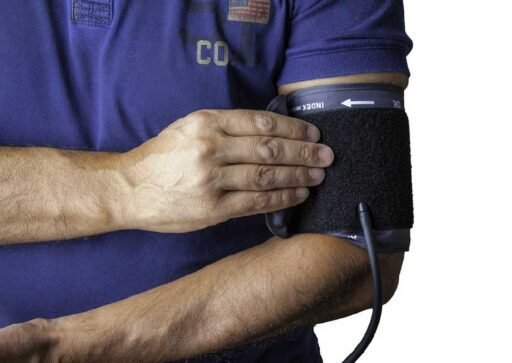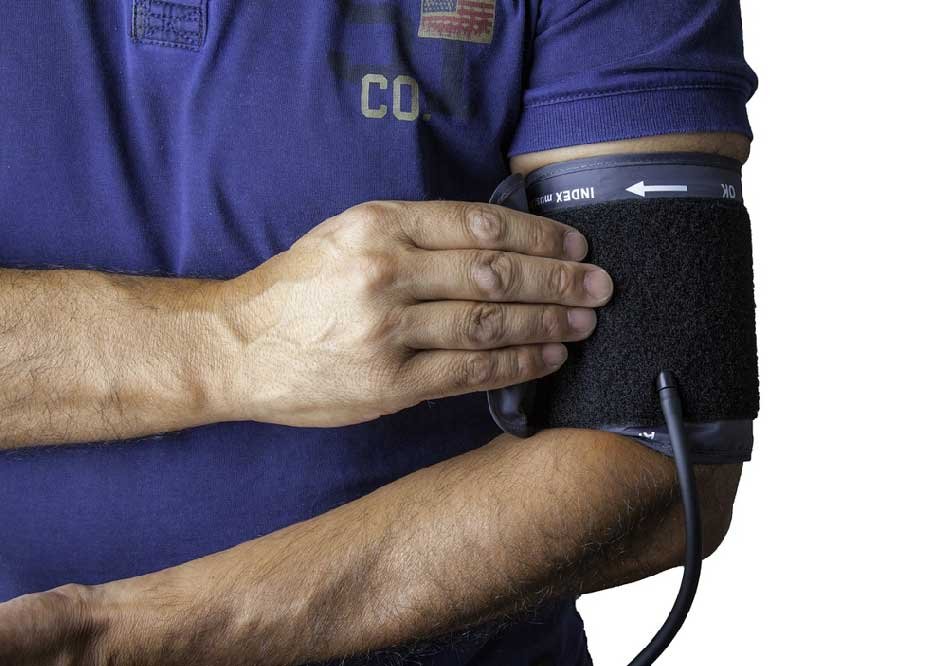Keeping your heart healthy is essential for a long, fulfilling life. Although heart disease is one of the leading causes of death globally, adopting certain habits can significantly lower your risk. You can protect yourself and maintain a strong cardiovascular system by focusing on nutrition, exercise, sleep, stress management, and regular health check-ups.
Here are some simple habits you can incorporate into your daily routine to promote better heart health.
-
Maintain a Balanced Diet
A balanced diet filled with nutritious foods is key to cardiovascular health. Focus on incorporating whole grains, fruits, vegetables, and lean proteins into your meals. Foods like salmon, nuts, seeds, and avocados, which are high in omega-3 fatty acids, help reduce inflammation and promote healthier cholesterol levels. At the same time, it’s important to minimize the intake of processed foods, trans fats, and added sugars, as these can lead to plaque buildup in the arteries and increase the risk of heart disease.
-
Incorporate Regular Physical Activity
Exercise is one of the best ways to strengthen your cardiovascular system. Engaging in activities like brisk walking, jogging, swimming, or cycling for at least 150 minutes per week helps improve circulation, lowers blood pressure, and strengthens your heart muscle. You don’t need strenuous workouts to see benefits. Even moderate exercise, like a daily walk or light jogging, can significantly impact you. The key is consistency; making regular physical activity a part of your routine will help you maintain cardiac health in the long term.
-
Incorporate Supplements into Your Routine
One of the most effective cardiac health tips is incorporating heart-healthy supplements into your routine. Using evidence-based supplements can be a natural way to support cardiovascular health. Supplements like Cardiac Fish Oil, CoQ10, and Resveratrol, as recommended by Dr. A. Feyrer-Melk at the Optimal Heart Center & Body Lab, can do wonders for your cardiac health.
Cardiac Fish Oil contains concentrated omega-3 fatty acids such as EPA, which reduce inflammation and support cardiac function. CoQ10, particularly in its bioactive form ubiquinol, helps neutralize free radicals and provides antioxidant support. Resveratrol blends antioxidants like quercetin and pterostilbene, promoting healthy aging and circulation. These scientifically backed supplements offer natural support for cardiovascular health through high-quality ingredients. Incorporating them into your routine can make a significant difference for your heart.
-
Reroute Your Lifestyle
Rerouting your lifestyle toward healthy habits is another great way to boost cardiac health. This involves making better daily decisions that support cardiac health. Simple changes, such as taking the stairs instead of the elevator, limiting sodium intake, and incorporating more water into your routine, can make a big difference over time. By gradually integrating these small, easy-to-follow steps, you can ensure that your heart stays healthier and functions better without overwhelming yourself with major lifestyle changes all at once.
-
Get Enough Quality Sleep
Quality sleep is essential for your body to recover and recharge, and it plays a crucial role in maintaining cardiovascular health. Poor sleep or lack of rest can lead to high blood pressure and increased inflammation, negatively affecting your heart over time. Aim for 7-9 hours of sleep per night to support your overall health. Creating a regular sleep routine, avoiding caffeine in the evening, and reducing screen time before bed can improve sleep quality, ensuring your body gets the rest it needs.
-
Manage Stress Effectively
Chronic stress can take a toll on your cardiovascular system by raising blood pressure and increasing your heart rate. Incorporating stress-relief practices into your routine, such as meditation, yoga, or deep breathing exercises, can help lower these negative effects. Making time for relaxation and hobbies you enjoy is equally important, as it helps balance the demands of daily life. By managing stress effectively, you can protect your heart from the harmful effects of long-term tension and pressure.
-
Keep Blood Pressure in Check
Monitoring and maintaining healthy blood pressure is essential for reducing the strain on your cardiovascular system. High blood pressure, also known as hypertension, puts excess stress on blood vessels and can lead to complications like heart attacks or strokes if left unmanaged. To keep blood pressure within a healthy range, it’s important to eat a diet low in sodium, exercise regularly, and limit alcohol consumption. Additionally, regular check-ups can help you stay aware of your levels and make necessary adjustments to your lifestyle or medication as needed.
-
Control Cholesterol Levels
Cholesterol management is another critical factor in maintaining cardiovascular health. High levels of bad cholesterol (LDL) can lead to plaque buildup in the arteries, increasing the risk of blockages and other problems. On the other hand, good cholesterol (HDL) helps remove excess cholesterol from the bloodstream. To maintain healthy cholesterol levels, focus on a diet that includes fiber-rich foods, healthy fats, and lean proteins while avoiding saturated fats and trans fats. Regular exercise and routine cholesterol screenings can also help monitor and control cholesterol levels.
-
Stay Hydrated
Proper hydration is essential for supporting overall health, including cardiac function. When you stay hydrated, your blood maintains the right consistency, making it easier for your cardiovascular system to circulate blood efficiently. Water is the best choice for hydration, as it keeps the body functioning optimally without added sugars or chemicals. Make a habit of drinking water throughout the day, especially during physical activity or in hot weather, to help your body stay balanced and energized.
-
Avoid Smoking and Limit Alcohol
Smoking is one of the most harmful habits for cardiovascular health, as it damages blood vessels, increases blood pressure, and raises the risk of disease. Quitting smoking, or avoiding it altogether, is one of the most impactful steps you can take to protect your heart. Similarly, excessive alcohol consumption can lead to high blood pressure, heart failure, and irregular heartbeats. If you drink alcohol, do so in moderation—no more than one drink per day for women and two drinks per day for men is recommended for maintaining health.
Maintaining a strong and healthy cardiovascular system requires consistently adopting heart-friendly habits. Eating a balanced diet, staying active, managing stress, and attending regular health screenings are all important steps to protect your heart. Integrating these practices into your daily life can significantly reduce the risk of heart disease and improve your overall well-being. Small, sustainable changes make a big difference in cardiac health, and starting today can lead to a healthier tomorrow.





